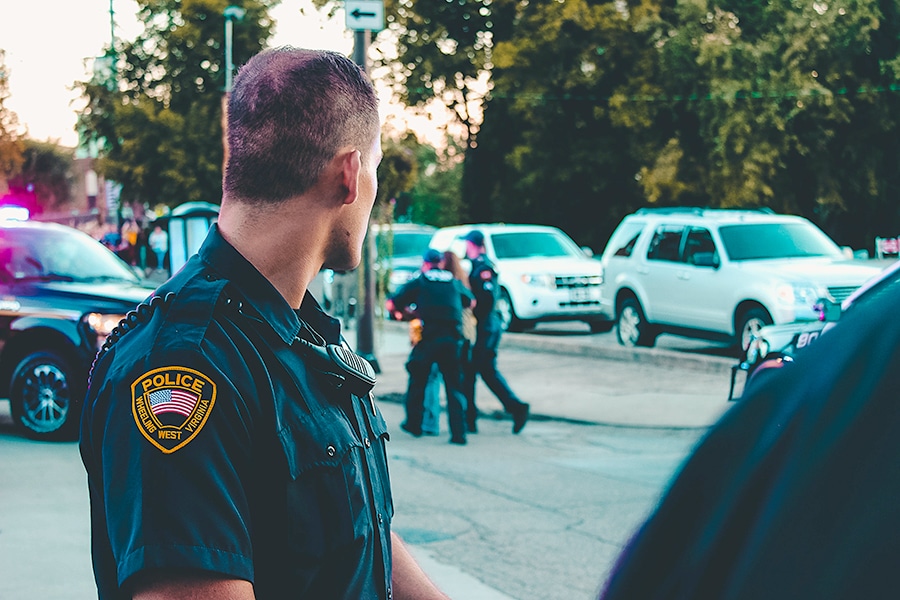If you’ve been the victim of excessive force or police misconduct, you may have grounds for a lawsuit. We’ve compiled a list of common questions about when misconduct warrants legal action and how to pursue a lawsuit.
When Can I Sue the Police?
If your rights were violated by law enforcement you may have a case for a lawsuit. Police officers that engage in misconduct, use excessive force, or act unlawfully can be sued.
To know if your claims warrant a lawsuit, consider how much evidence exists. Claims with substantial supporting elements are the most likely to go to trial. If evidence exists that you aren’t in possession of, like body camera footage, a lawyer can help you navigate the legal channels needed to obtain the evidence for your case.
Should I Sue the Police Department?
In addition to suing an officer, you also have the right to sue a police department. This is most often the case when an officer acted unlawfully under the support of their superiors or other department personnel. The police department may also be liable if the department procedures followed were inherently unlawful or discriminatory.
If the overall department played a role in your misconduct claims, your lawyer might recommend suing the police department as well. However, including a police department in a lawsuit depends on how much the department played a role in your situation. You’ll also need enough evidence of department involvement to support your claims.
Most Common Types of Misconduct Claims
The most common type of misconduct claim is that police violated an individual’s Fourth Amendment rights. The Fourth Amendment is most often applied to excessive force cases.
The Fourth Amendment protects two Constitutional rights: the protection against unreasonable search and seizure and the protection against cruel and unusual punishment. A law enforcement officer using force against you without case or using more force than is necessary warrants a Constitutional rights case.
Your Claims Against the Police Officer
There are many forms of misconduct police officers can commit that warrant a lawsuit. In some cases involving an excessive amount of force, a criminal case may also be possible. Criminal charges against law enforcement usually involve unwarranted police shootings, sexual assault, or wrongful death claims.
To know if your claims are grounds for legal action, ask an excessive force attorney.
How Long Do You Have to Report Police Brutality?
You should contact a lawyer as soon as you’re able to report police misconduct or brutality. However, this might not always be an option. You might have been unaware of your rights or didn’t know how to report police excessive force. If this is the case, consult your attorney about what your state’s laws are regarding civil cases against police.
Statute of Limitations and Burden of Proof
There are some limitations and roadblocks to pursuing an excessive force lawsuit. Namely, the statute of limitations and the burden of proof. The statute of limitations is a time limit on a case. You have a limited amount of time to file a civil suit before it is no longer a legal option.
The burden of proof is another legal requirement. You’ll need to meet a certain threshold of evidence to prove that police misconduct took place. The amount of proof needed to win a civil lawsuit depends on the state. You’ll want to ask your attorney how much evidence is needed to make your case.
Contact an Excessive Force Lawyer
If you think you have a case for police misconduct, you should contact a lawyer right away. An excessive force lawyer can tell you if you have a case and what should be done to file a lawsuit.
Waiting to get a lawyer involved may weaken your excessive force case. It’s best to contact an excessive force expert for legal advice as soon as possible.
Why Do I Need a Lawyer?
Lawsuits can get complicated, especially when you’re suing the police. To have the highest chance of success, you should have an experienced law firm on your case. You’ll need someone who has in-depth knowledge of the court system and proven success with excessive force lawsuits.
Personal injury lawyers typically handle excessive force, police misconduct, and police brutality cases.
If you need advice on how to pursue an excessive force lawsuit, contact us at 800-874-3528 for a free consultation.
